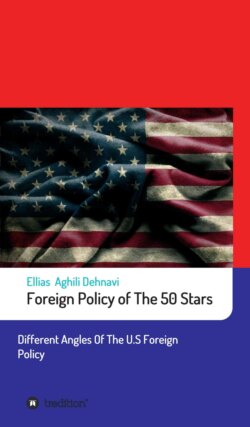Читать книгу Foreign Policy of The 50 Stars - Ellias Aghili Dehnavi - Страница 6
На сайте Литреса книга снята с продажи.
ОглавлениеPart I
FORCE AND FOREIGN POLICY
Today there is a mistaken belief that force no longer serves America's interests well. This belief has three variants. First is the view that military power is less relevant because the terms of state competition now turn on economic rather than on military matters. The health and the competitiveness of the American economy are now the prime American interests, and they require economic, not military solutions. Too great a concentration on military power drains scarce resources and intellectual energy away from these vital matters. Second is the view that military power is less needed, because developments such as economic interdependence, the spread of democracy, and international institutions have rendered interstate relations, especially among the great industrial powers, more benign and easier to manage. These factors serve as functional equivalents for military power and make state relations much less dependent on it. Third is the belief that the dissolution of the Soviet Union has rendered an American forward defense posture anachronistic. Because the nation no longer faces an overarching military threat and because none is on the horizon, the United States no longer needs either its alliances with Japan and Western Europe or its troops in Eurasia.
If these three views are correct, then America's military power can be relegated to a largely residual role, good mostly for defending American territory. All that then needs to be said about an American grand strategy is this: bring all the troops’ home, construct a good military defense of the homeland, and be done with the matter; If, however, military power has more versatility than the residual role of homeland defense, if it can be used to support a wider range of interests in peacetime as well as in war, if a forward defense posture still remains prudent, then grand strategy becomes more pivotal to American interests, more complex in its design and implementation, and therefore more important to get right.
I take the second position, not the first. True, military issues no longer dominate the American foreign policy agenda, but that does not make military power of less value. True, threats to American interests are not as severe and intense as they once were, but that does not mean American interests are threat-free. True, economic issues loom larger than they previously did, but that does not mean that military power is wholly useless in dealing with them. Also, true, democracy is spreading, economic interdependence is growing, and international institutions are flourishing, but they cannot wholly fill the political vacuum created by the absence of an effective world government and the military power that would accompany it. For these reasons, I hold to two propositions contrary to the emerging conventional wisdom. I maintain, first, that military power is as vital to American statecraft as it has always been and, second, that a forward defense posture is as essential as it previously was.
In this article, my intent is not to argue that military power is the most important instrument of statecraft. That would be absurd. There is no "most important instrument." Rather my goal is to show that arguments about the severely diminished utility of military power are both wrongheaded and dangerous. They are wrongheaded because they misunderstand the subtle ways in which force influences politics; they are dangerous because, if acted upon, they could cripple American statecraft and grievously harm American interests.
There are two fundamental reasons why military power remains more essential to statecraft than is commonly thought. First, in an anarchic realm (one without a central government), force is integral to political interaction. Foreign policy cannot be divorced from military power. Second, force is "fungible." It can be used for a wide variety of tasks and across different policy domains; it can be employed for both military and nonmilitary purposes. If force is integral to statecraft and useful in many policy domains, then military power will continue to play an important role in America's foreign policy, even when economic factors have become more salient and there is no clear and present danger to the United States.
In order to develop these points, I proceed in the following manner. First, I make the argument that force is fungible because of the central role that coercion plays in politics in general and in foreign policy in particular. Second, I present a counterargument, which asserts that military power is not all that fungible, and then show why it is wrong. Third, I analyze the two fundamental ways that force achieves its fungibility. Fourth, I draw some conclusions about what the United States can expect from its military power in today's world.
